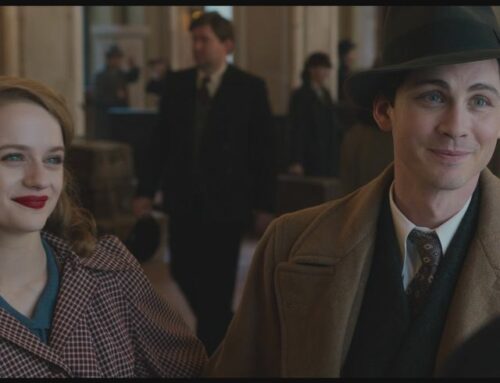There’s one reason to see THE IRON LADY and that reason is Meryl Streep. Yes, I KNOW you know she is the most nominated actress in Oscar history, nominated again this year for Best Actress making that 17 nominations in all (this year bookies are putting their odds on Streep!) We all know that she’s the queen of disguises– she plays humans and angels, men and women, old and young, plain and pretty. And there’s no end to the accents — from Australian, to Danish, to Polish, to New Yawk, to Italian by way of Madison County. She sings. She dances. She croons like Julia. What can’t the woman do? She can certainly do the deeply polarizing, grocer’s daughter turned British Prime Minister with the lacquered coif, and even more impervious persona: Margaret Thatcher. So I was ready. But I was not.
Within one minute of watching this rather unsatisfying film–my jaw was on the floor. Meryl had again, disappeared. In her place was a woman in her 80’s with a slight overbite, speckled but once luminous skin, a rounded body now stooped from a great height and subtly drawn lower, slower into the ground. By what alchemy had Streep retrained her whole physiognomy and spirit to reflect the way time and gravity work on us? How had she aged overnight? I could see no acting. Her voice was deep, reedy, hollow; it retained no “Streep-like” characteristics, only the remnants of a strong muscle worn out after years of speech-making before one of the most boisterous parliamentary bodies on the planet. How the hell.
The film is a misguided attempt to make this often despised figure more “sympathetic.” The salient episodes of Thatcher’s rise to power, and the dramatic moments in her tenure– the Falklands, the economic implosion, the riots, are sandwiched between bouts of dementia. We first meet Mrs. Thatcher meandering through a grocery store and then her home, holding conversations with her late husband (Jim Broadbent). Why they’ve book-ended her achievements on the world stage, her complex character, and her little discussed family life, between hallucinatory episodes (she’s still alive and mentally compromised)is bewildering. Imagine if the Brits had made a film about Ronald Reagan and framed it within the context of his Alzheimer’s, repeatedly showing him doddering around bumping into the furniture and conversing with dead relatives. It’s an odd, diminishing point of departure and doesn’t tell me what I want to know.
There is one scene that says more about Streep and Thatcher than every other scene combined. At one point, Mrs. Thatcher gives one of her ministers a public dressing down. Her anger rises slowly, surely, her victim in her sights, unable to escape the venom in her voice and eyes; she is almost out of control as her rage slowly seeps out, poisoning the offending subject. The room clears out and Thatcher is left alone to stew in the toxic atmosphere that lingers– and which will eventually destroy her. As Thatcher sits there, we watch the aftermath of her miscalculated fury in the subtle play between her eyes and face–the cooling anger and wounded pride, giving way to embarrassment, damage assessment, and finally– haughty self-assurance. Streep never utters a word.
I want to know more about the stuff Maggie was made of as the first and only female Prime Minister in Britain’s history and how she got that way. Love her or hate her, I wanted to understand her; the film in this regard does her a disservice and comes up short. But see it for Streep so that when she wins the Oscar for Best Actress this year– and my money’s on her–you understand why.






Leave A Comment
You must be logged in to post a comment.